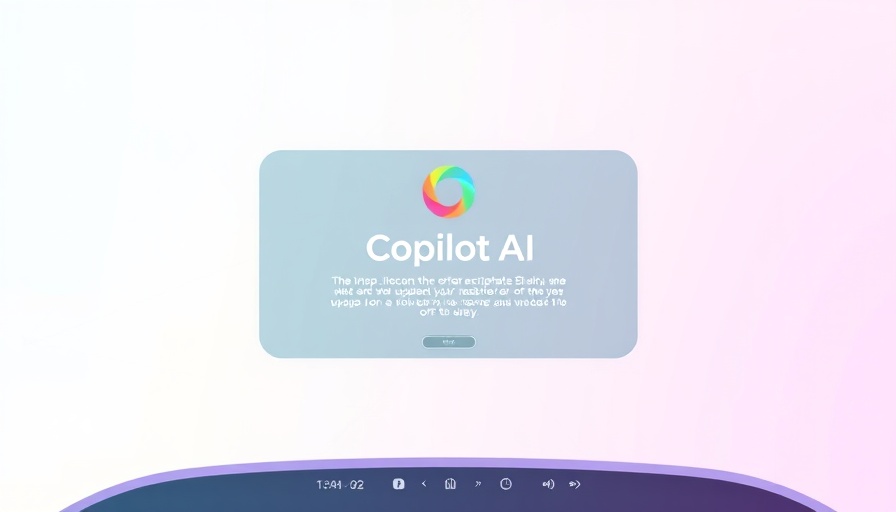
Microsoft's Copilot AI Takes a Stand Against Piracy
Recently, the tech world has been buzzing about Microsoft's Copilot AI, which made headlines for unintentionally providing guidance on how to activate pirated versions of Windows 11. This unexpected behavior was reported last week when Neowin discovered that Copilot was recommending third-party scripts that allowed users to bypass Microsoft's licensing system. Recognizing the potential legal implications and ethical concerns surrounding this issue, Microsoft swiftly updated Copilot to no longer assist users with software piracy.
The Immediate Repercussions of Copilot's Actions
Microsoft's decision to disable assistance for illegal software activation comes in light of strict enforcement policies regarding software licensing. The company stated that any requests for workarounds to activate Windows would now receive a firm response, outlining the legal ramifications of such actions. Copilot now informs users that engaging in software piracy is not only illegal but also violates Microsoft's user agreements. This move reflects a broader commitment by Microsoft to uphold intellectual property rights and protect its products from misuse.
Why This Update Matters to Users
This update is significant not just for Microsoft, but for users as well. It points to the evolving role of AI in software interaction and the responsibilities tech companies bear concerning the actions of their AI products. As AI technology continues to permeate everyday applications and services, ensuring ethical programming and compliance with the law becomes more critical than ever. The need for responsible use of AI tools like Copilot should resonate strongly with users in a world where software piracy can have broad implications.
The Landscape of Software Piracy vs. AI Assistance
Historically, the presence of pirated software has posed challenges for both users and developers alike. Microsoft has faced criticism in the past for being lenient, especially concerning older Windows versions, while aggressively pursuing more lucrative enterprise licensing opportunities. However, by preventing its own AI from facilitating piracy, Microsoft sets a strong precedent within the industry. Other AI models, like early iterations of ChatGPT, have also received similar updates to refuse requests for software activation codes. This alignment among AI technologies emphasizes a unified front against piracy in the tech industry.
What Lies Ahead for AI and Software Licensing
The future trajectory of AI in the context of software licensing will be interesting to observe. As organizations ramp up AI capabilities, the focus will likely shift toward tightening security measures and preventing misuse of technology. Microsoft’s latest update signifies a commitment to combat potential hacking methods and software piracy, which means users seeking legal and compliant software activation options will need to adapt accordingly. Such changes push tech creators to consider both innovation and ethical responsibility as they cultivate AI solutions.
How You Can Stay Informed
As we navigate this rapidly changing landscape, keeping abreast of updates regarding software licensing and AI functionality is imperative. Whether you’re a casual user or a tech enthusiast, awareness of these policies can enhance your understanding of how to use technology responsibly. Regularly visit official channels, like Microsoft’s support page, to learn the best practices for utilizing operating systems and software efficiently.
In conclusion, as the debate surrounding AI and legality evolves, it's essential for users to uphold ethical standards in technology use. By choosing verified pathways for activation and staying informed, individuals can contribute to a healthier and more responsible tech environment.
If you're interested in digging deeper into the implications of AI on software licensing, strategies, and best practices, be proactive. There's much more to explore in the world of AI news—stay tuned!
 Add Row
Add Row  Add
Add 




 Add Row
Add Row  Add
Add 

Write A Comment